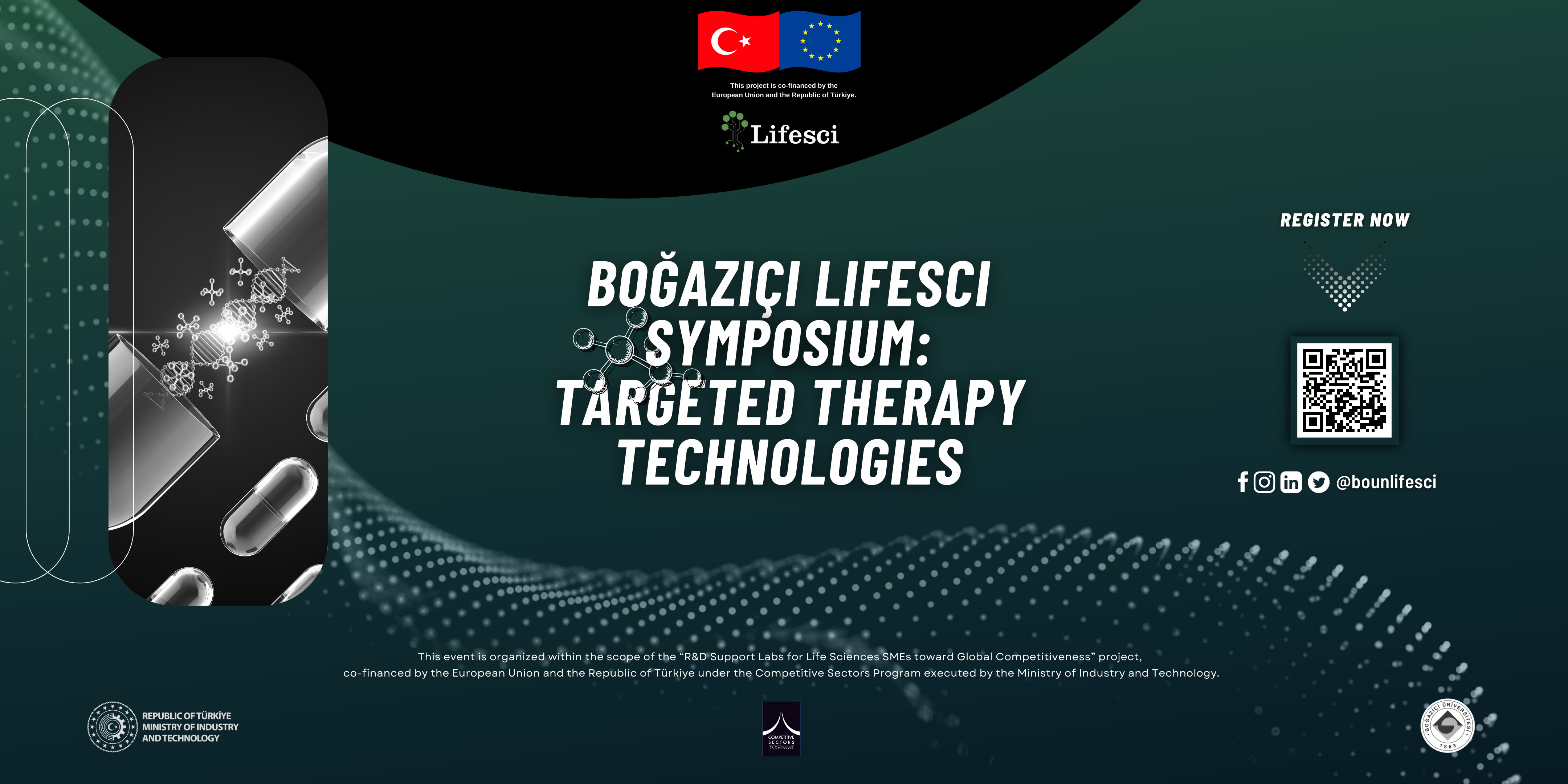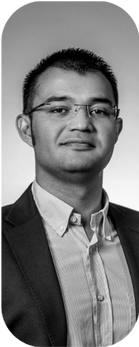
Panel 1: Emerging Topics in Targeted Nanomedicine - Mon, April 3, 2023, 10:30 - 12:30
Prof. Hamid GHANDEHARI
Dr. Ghandehari is a Professor and George S. and Dolores Doré Eccles Presidential Endowed Chair in the Departments of Molecular Pharmaceutics, Professor, Biomedical Engineering, and Director of Utah Center for Nanomedicine. His research focuses on the design of recombinant polymers for localized drug delivery, targeted delivery of polymer therapeutics to solid tumors, oral delivery of chemotherapeutics, and assessing the biocompatibility of silica and dendritic nanoconstructs.
Prof. Twan LAMMERS
Twan Lammers obtained a D.Sc. in Radiation Oncology from Heidelberg University in 2008 and a Ph.D. in Pharmaceutics from Utrecht University in 2009. In the same year, he started the Nanomedicine and Theranostics group at RWTH Aachen University. In 2014, he was promoted to full professor of medicine at RWTH Aachen University Hospital. His group aims to individualize and improve disease treatment by combining drug targeting with imaging. To this end, image-guided (theranostic) drug delivery systems are being developed, as well as materials and methods to monitor tumor growth, angiogenesis, inflammation, fibrosis and metastasis. He received multiple scholarships and awards, including ERC starting, consolidator and proof-of-concept grants, the CRS Young Investigator Award, the Adritelf International Award, the Belgian Society for Pharmaceutical Sciences International Award, and the JNB Trailblazer Award. He serves on the editorial board of 10 journals, and is associate editor for JCR, DDTR and MIB. Since 2019, he has been included in the Clarivate Analytics list of Highly Cited Researchers.
Panel 2: Emerging Topics in Cellular Therapies - Mon, April 3, 2023, 13:30 - 15:00
Metin KURTOĞLU, MD, PhD
As a graduate of Istanbul University Capa Faculty of Medicine, Metin Kurtoğlu went to the USA and finishes his PhD in cell and molecular biology. During and after his doctorate, his research focused on cancer biology, chemotherapy resistance mechanisms and tumor metabolism. He continued his post-medical clinical training in the USA by receiving specializations in internal medicine and medical oncology. He worked in immunotherapy and CAR-T cell studies at the US National Institute of Health. In 2016 he founded Cartesian Therapeutics with his two partners. All products developed by the company are based on human cells with modified RNA sequences and have received clinical study permission from FDA for 4 different products since its establishment. One of these products is a CAR-T product tested in a non-cancer disease for the first time in the world, and this year it entered the clinical Phase 2b study.

Prof. Derya UNUTMAZ, MD, PHD
Derya Unutmaz has received his Medical Degree from Marmara University Medical School, Istanbul, Türkiye. He did postdoctoral studies at Novartis, Switzerland and at New York University (NYU) School of Medicine in NY. He was an assistant professor at Vanderbilt University, where he received tenure and promoted to associate professor. In 2006, he moved to NYU School of Medicine as tenured Professor of Microbiology, Medicine and Pathology. Since 2015 he has been Professor at Jackson Laboratory for Genomic Medicine, in Farmington, CT, and affiliated Professor at UConn School of Medicine. He is currently the director of Collaborative Research Center for ME/CFS at Jackson Laboratory. His lab developed various genetic methods and assays to interrogate human immune cells from healthy people and patients. These approaches led to several important discoveries in diseases such as HIV infection and cancer immunotherapy. His lab is also developing 3D-bioprinting and synthetic bioengineering technologies for precision medicine approaches for cancer and to fine-tune immune responses during aging and chronic diseases most recently of ME/CFS disease. His lab has also contributed to understanding of immune response to COVID-19 during the pandemic. He has published more than 140 original papers, including in top journals like Nature and Science, and is a co-inventor in 8 patents. His publications have received more than 27,000 citations and currently has H index of 70.

Erkut BAHCECI, MD
Dr. Erkut Bahceci is the Chief Medical Officer of BlueSphere Bio. Dr. Bahceci received his MD degree from Marmara University in Istanbul, Türkiye. He did his residency training in Internal Medicine at Mercy Hospital in Chicago and National Heart Lung and Blood Institute, National Institutes of Health in Bethesda, Maryland, followed by fellowship in Hematology and Oncology at National Heart Lung and Blood Institute. He was appointed to the faculty of the Yale University School of Medicine in 2000, where he performed allogeneic and autologous stem cell transplants, and conducted research on immunotherapy, including chimeric activating receptor (CAR) T cell therapy, until 2007.Prior to joining the BlueSphere, Dr. Bahceci worked in Takeda, where he was the Senior Vice President and Head, Oncology Development, leading the development of new cancer drugs with multiple modes of action. Prior to that, he worked at Astellas for a decade, working in roles of increasing responsibility up to the Head of Clinical Science, Hematologic Malignancies. He led the development of gilteritinib from first-in-human to worldwide approval in relapsed or refractory AML. Prior to joining Astellas, he worked at Bristol-Myers-Squib, leading the US team for dasatinib. Erkut began his career in the pharmaceutical industry at Bayer. Dr. Bahceci is a leader in bringing forth innovative trial models, as well as applying quantitative decision-making rules to accelerate development and decision-making in the oncology drug development space.
Panel 3: Emerging Topics in “Smart” in vivo Devices - Mon, April 3, 2023, 15:30 - 17:00

Prof. Max J. Ortiz CATALAN
Prof. Max Ortiz Catalán, Ph.D., is the Founder and Director of the Center for Bionics and Pain Research (@CBPR.se) and the Professor of Bionics at Chalmers University of Technology, Sweden. He has received several honors for his work, notably the “Swedish Embedded Award” by the Swedish Electronic Association in 2018, the “Brian & Joyce Blatchford Award” by ISPO in 2017, the “Delsys Prize” by Delsys in 2016, and the “European Youth Award” by the European Council in 2014. His research includes bioelectric signals acquisition electronics (analog and digital); bioelectric signal processing and machine learning algorithms for decoding motor volition and control; neuromuscular interfaces; neurostimulation for sensory feedback; bone-anchored prostheses and osseointegration; and virtual and augmented reality for neuromuscular rehabilitation and the treatment of phantom limb pain. Prof. Ortiz Catalán will present clinically viable technologies to restore quality of life to patients with sensorimotor impairment. He led the development of the first prosthetic arm integrated directly into a patient’s bone, nerves, and muscles. The first patient implanted with this neuromusculoskeletal interface has used it for over 10 years in everyday life. Patients implanted with this new generation of prostheses are also provided with intuitive sensory feedback via direct nerve stimulation. Originally developed for above-elbow amputations, this technology is now being implemented for below-elbow and lower limb amputations. Prof. Ortiz Catalán will also present a novel hypothesis on the origin and treatment of Phantom Limb Pain, and how motor decoding technology can be used to treat it. He will also discuss the application of said technologies to restore function after nerve injuries and stroke.

Fikret KÜÇÜKDEVECİ
Fikret Küçükdeveci received his BSc EE from İTÜ and MSc EE from METU. Starting from the first hospital biomedical and clinical engineering center of Türkiye in the medical devices sector, he has achieved many firsts from R&D to production, sales and service and has 40 years of experience in the sector. He is the founder of Kardinero, a medical devices company specializing in the production of diagnostic cardiology equipment. Currently, Kardinero aims to develop a Bluetooth-based system to record and monitor patients’ vital parameters remotely.



